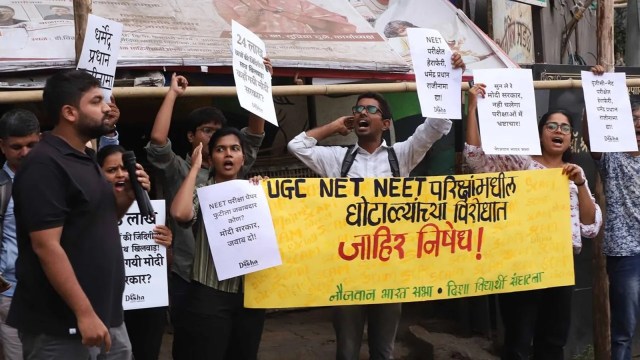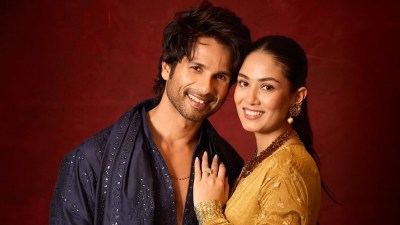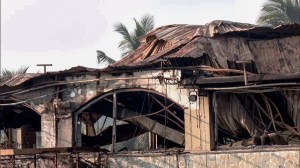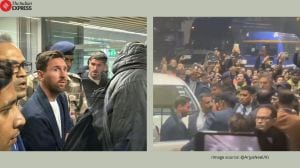The Supreme Court on Monday said the initial statements of some of the accused arrested in the NEET-UG case indicated that a “leak” may have occurred on the night of May 4, on the eve of the exam, but no evidence had been placed before it so far to establish that the breach was widespread, so as to warrant cancellation of the exam.

“All first statements seem to indicate that the leak takes place on the night of May 4,” said Chief Justice of India D Y Chandrachud, presiding over a three-Judge Bench, adding that the question was whether the breach was confined to Hazaribagh and Patna, or spread to other states as well.
The CBI apprised the Bench, which included Justices J B Pardiwala and Manoj Misra, on the statements of some of the accused arrested by the Bihar Police, and later by the CBI which took over the investigation.
Ruling out any widespread leak, the Centre and the National Testing Agency (NTA) have maintained that the “breach” was confined to Hazaribagh and Patna, and it occurred on the morning of May 5, the date of the exam. The Centre was represented by Solicitor General Tushar Mehta.
Senior Advocate Narender Hooda, appearing for some of the petitioners, has contended that the leak took place before May 5.
“Assuming that the theory (of the Centre and CBI) that the solved question papers were made available at about 10.15 am (May 5), and between 9.20 am and 10.15 am, the seven chaps (question solvers) solved all the questions and gave them to the students, is the leak systemic or confined to Hazaribagh and Patna? That you have to establish something on the basis of data. Show us what the data tells you. Until now, we are focused on Hazaribagh and Patna… whether the leak took place in the morning (of May 5) or the night of May 4, whether it took place before lodging (the question papers) in the bank vaults,” the CJI said.
Story continues below this ad
“But how widespread is it? We don’t have any other material apart from this, what you have showed us, to indicate that the leak was so widespread that it found its way all over the country… You will have to show there is systemic destruction of the sanctity of the exam across India… Is there any contemporary evidence to indicate that the leak went to other states,” the CJI asked Hooda.
Hooda responded that there were systemic flaws in the way the exam was conducted by the NTA and said he was relying on “circumstantial evidence” to say the leak must have happened in other states too.
“The way the NTA is holding this exam, it cannot be sustained because there is absolutely no system in place… So far as direct evidence of this crime is concerned, the file is before the court, which is being investigated. As petitioners who are not privy to the investigation either by Bihar Police or by the CBI, all we can rely on is the circumstantial evidence,” said Hooda.
“Therefore (your case is that), falling back on an alternative hypothesis, because of these systemic flaws in the process, credibility of the exam must have been breached in other states… We do not have evidence to show that there was a leak in other states, but because of these flaws in the examination process… it is likely that it must have spread to other states,” the CJI said.
“That’s my case,” agreed Hooda.
Story continues below this ad
The Bench also questioned the NTA about reports that question paper booklets from Canara Bank were distributed at three centres in Jhajjar (Haryana), instead of booklets from the State Bank of India.
Earlier, while observing that the sanctity of the exam had been “breached”, the SC had observed that ordering a retest depended on whether the alleged breach was at a systemic level and affected the integrity of the entire process, and whether it was possible to segregate the beneficiaries of the fraud from untainted students.
Hooda, in his arguments, cited the Supreme Court’s 2015 decision to cancel the All India-Pre Medical/ Pre-Dental Entrance Test, after finding that 44 candidates benefitted by unfair means. “Even if one undeserving candidate, a beneficiary of such illegal machination, though undetected, is retained in the process, it would be in denial of the claim of more deserving candidates. At present, the examination stands denuded of its sanctity as it is not possible to be cleansed of all the participating beneficiary candidates with certainty,” the SC had said in 2015.
In a hearing that lasted over five hours, 23 lawyers argued before the Court, including SG Mehta. The hearing will resume on Tuesday.


































